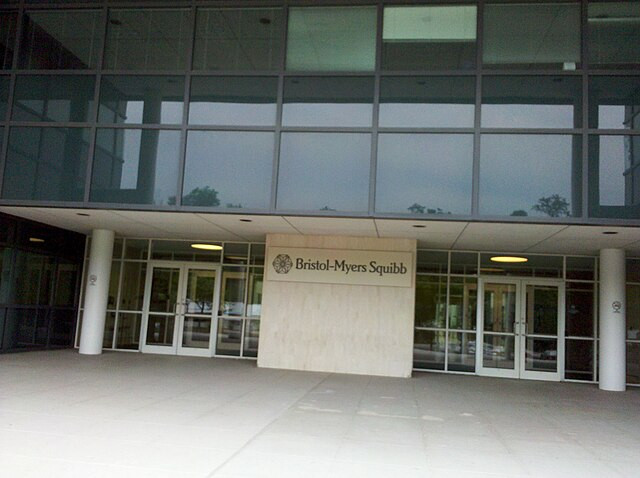Bristol Myers Squibb will pay $1.5 billion upfront to BioNTech SE for rights to co-develop and commercialize the German biotech's experimental cancer drug BNT327, the companies said Monday, in a partnership that could ultimately exceed $11 billion in total value. The agreement marks one of the largest oncology licensing deals in recent years and reflects intensifying competition in the immuno-oncology space.
Shares of BioNTech rose as much as 15% in U.S. premarket trading and jumped 13.1% on the Frankfurt Stock Exchange to a one-month high. Bristol Myers shares edged about 1% higher. The drug, BNT327, targets solid tumors using a dual mechanism: stimulating the immune system, like Merck & Co.'s Keytruda, while simultaneously disrupting a tumor's blood supply.
"We are impressed by the innovation that BioNTech has achieved to date and we look forward to partnering to accelerate existing clinical trials and time to market, while expanding the number of potential indications," said Bristol Myers CEO Chris Boerner.
Under the agreement, BioNTech will receive an additional $2 billion in non-contingent anniversary payments through 2028 and could earn up to $7.6 billion in development, regulatory, and commercial milestones. The companies will split global profits and losses 50/50, as well as joint development and manufacturing costs, with limited exceptions.
BNT327, part of a class known as bispecific antibodies, is currently in trials for first-line treatment of small cell and non-small cell lung cancers. More than 1,000 patients have been treated so far. The asset had been licensed from China's Biotheus in 2023, and BioNTech acquired full ownership earlier this year in a deal worth up to $950 million.
The deal gives both companies rights to study BNT327 in combination with each other's experimental cancer compounds. It also signals Bristol Myers' strategy to bolster its pipeline ahead of upcoming patent expirations for its key drugs. The company has spent more than $20 billion on acquisitions since late 2023, as its blockbuster immunotherapy Opdivo faces pricing pressure and its blood thinner Eliquis is expected to see generic competition by 2028.
The immuno-oncology market, currently led by Keytruda, is forecast to reach $60 billion in annual global sales by 2027, according to Bloomberg Intelligence. Study data presented at the American Society of Clinical Oncology this week highlighted other entrants, including Pfizer's recent $6.1 billion licensing deal with 3SBio for a similar compound.
Sam Fazeli, an analyst at Bloomberg Intelligence, noted that while Pfizer's candidate may be more effective based on preliminary data, "BioNTech is ahead in the effort to expand use of such treatments to more types of cancers."




